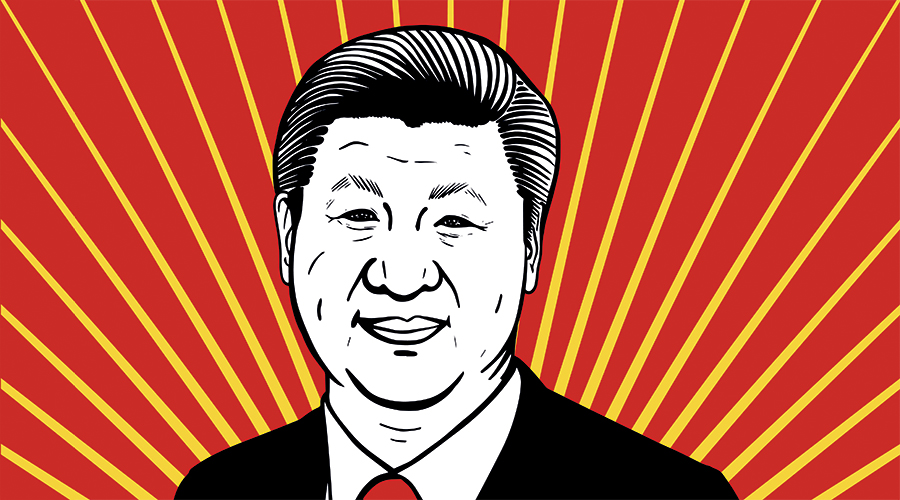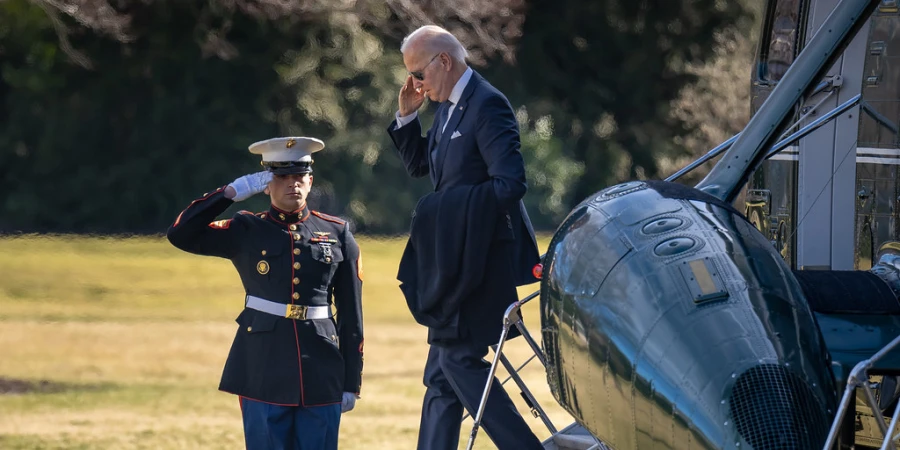On January 20, 2021, Joe Biden became the 46th President of the United States. After four years of Trump presidency that undermined America’s global standing and ended with the assault on the Capitol, Biden had one clear message: “America is back!” Biden’s master plan was to return to Obama’s doctrine, leave the global war on terror behind, and focus on East Asia against the rising Chinese power.
But plans are one thing and reality is another. President Biden’s plans were derailed time and again. In the summer of 2021, the first major crisis came with the rapid, not to say panicked, American withdrawal from Afghanistan. The withdrawal came after a controversial peace agreement was signed between the Trump administration and the Taliban, but the poor execution and rapid collapse of everything the US tried to build in the country for 20 years severely damaged the US image.]
In early 2022, Russia invaded Ukraine, launching the largest war in Europe since World War II. The US, along with all European countries, found itself sucked into a bloody and seemingly intractable crisis. The war in Ukraine, coupled with the heavy costs of the COVID-19 pandemic, fueled a global economic crisis and crashed Wall Street.

2023 may be remembered as a pivotal year in the Biden’s presidency and America’s global standing in the coming years. On one hand, the US took a series of blows – China and Russia have led the de-dollarization charge in international trade and foreign currency reserves. This is one of the key initiatives of the BRICS economic bloc that the two lead and is expected to increase in influence in the coming years – on January, Iran, Saudi Arabia, Egypt, UAE and Ethiopia will also join the bloc, and a dozen other countries have applied for membership. China has also capitalized on the American absence from the region to broker the dramatic rapprochement between Iran and Saudi Arabia.
The Biden administration has also failed to effectively address the economic crisis and illegal immigration crisis overwhelming the US since he took office. Biden, the oldest president in US history, who will soon seek re-election, has often appeared confused and unfocused. His approval ratings have steadily declined, dropping below 40% in some September 2023 polls – lower than Trump or Obama at the same point in their presidencies.
A clear victory over Hamas and perhaps other Iranian proxy organizations would restore Israeli deterrence, keep the Abraham Accords alive and maintain the potential for normalization between Israel and Saudi Arabia. A victory for the Iranian axis means an elevated risk for all US allies in the area
On the other hand, Biden did make progress on a few key fronts – since the beginning of the year his administration has introduced several key long-term initiatives, such as the Americas Partnership for Economic Prosperity framework with Latin American countries, a trade agreement with Taiwan despite China’s vocal objections, and a new trade pact in the Indo-Pacific region. Since the Obama era the US has tried to improve its trade ties in the region as an alternative to China, and this year the deal was finally signed.
On September 9th, at the G20 summit, the US announced a complementary move involving Israel as well – a new trade route from India to the European Union, through the UAE, Saudi Arabia, Jordan and Israel. Essentially, this will entail railways and ports that will shorten existing trade routes. The initiative stems from the shared interests of all member states and the American-European desire to provide an alternative to the existing Chinese-dominated trade routes through Iran, Turkey and/or Russia. This could provide a boost to India’s growth and cut into China’s global trade share. In short, this could be a win-win for all member states, and a net loss to all the mentioned rivals.

The initiative is meant not only to strengthen America’s weakened global standing, but also to provide the necessary boost for normalization between Israel and Saudi Arabia. Such an agreement would have immense strategic significance – for Israel it would be the most important deal since the peace treaty with Egypt. For the US, the deal could cement a pro-Western regional axis in the region that secures American interests and pushes China and Russia out.
And Then October 7th Came
For the 9 months of the Israeli political crisis, Biden has kept his distance. But as soon as the war broke out he immediately and unambiguously stood by Israel in an unprecedented manner – he deployed the USS Gerald R. Ford battle group, the largest and newest in the US navy, to the region and then the USS Dwight D. Eisenhower and additional forces. President Biden proceeded to voice his unequivocal support for Israel in the most pro-Israeli speech ever made by a US president. He even made a historic visit to Israel during the war.
Biden is not alone in his support for Israel, and polls conducted in the US paint a positive picture for Israel. Biden himself suffers from low approval ratings and his support slipped slightly among the radical, pro-Palestinian wing of the Democratic party. But Israel itself enjoys significant backing across all age groups and the political spectrum, except for the progressive wing of the Democrats. A point of concern is the younger generation, which leans more towards the Palestinian side. Many at US campuses did not hesitate to voice support for Hamas and used extreme anti-Israeli and anti-Semitic rhetoric.

Comparing polls conducted in the pre-war months to those after October 7th, points to a clear strengthening of pro-Israel support among Republicans and Independents, and status-quo among Democrats. Most Americans would have preferred the administration take a balanced stance, but their share declined from 70% in June to 54% in October. As of late October, three-quarters of Americans who want the White House to clearly pick sides, favor Israel. One-quarter of Republicans argue Biden’s current stance is too pro-Palestinian.
There is no question that President Biden feels a deep emotional connection to Israel, as does his Secretary of State Antony Blinken. Israel also enjoyed support from all wings in the US Senate and House, except again for the progressive faction of the Democratic party. Yet America’s intervention in Israel’s favor has the potential to serve regional and global American interests as well, giving Biden – who enters an election year in two months – the boost he needs to secure a second term.
The War Through the Eyes of the Superpowers
The US has much to gain from an Israeli victory beyond the special bond with the Jewish people. Equally, the US has a lot to lose if, god forbid, Israel loses. A clear Israeli victory over Hamas and perhaps other Iranian proxy groups would restore Israeli deterrence, keep the Abraham Accords alive, and maintain the potential for normalization between Israel and Saudi Arabia. A victory for the Iranian axis means destabilization, strengthening of all radical elements in the region, and an elevated risk towards all US allies in the area and beyond. An Iranian win would also embolden Russia in Ukraine for example.
In an era of clear struggles between powers, it is difficult if not impossible for countries in conflict zones to remain non-aligned. Therefore, in any conflict each regional and global power has an interest in safeguarding its allies and swaying countries that are on the fence to join its block. This is precisely why President Biden stressed the importance of aiding both Israel and Ukraine against their enemies. When America immediately stands by Israel, it demonstrates to all its global allies – and no less significantly to all its adversaries – that it will not hesitate to act to protect its interests and allies.
In this context, the complex Middle East theater is perhaps the most convenient arena for the US to score significant achievements – in the Russia-Ukraine war and in any potential conflict in East Asia such as a Chinese move against Taiwan or the Philippines or a conflict between North Korea and South Korea or Japan, America’s ally would face a nuclear power. This situation has so far prevented direct US intervention and led Washington to only indirect support.
“The time comes, every 6-8 generations, where the world changes very rapidly over a short period…I think what happens over the next 2-3 years will shape what the world looks like for the next 5-6 decades“
Joe Biden
In the Middle East, however, only one country reportedly has –nuclear weapons, and it is on America’s side. This situation increases America’s maneuvering options and could enable it to increase pressure and even directly act against the region’s main adversary – Iran. Hitting Iranian capabilities could also reduce pressure in the Ukrainian arena, where the Russians make extensive use of Iranian drones. All this does not mean to suggest that the US is set on embarking on yet another military adventure in the region, but it is taking all possible actions to be prepared for that possibility. If and when the likelihood of a military clash rises, so will the likelihood of the Russians making moves of their own or threatening such to make the Americans think twice. For example, by supplying advanced air defense systems they have not sold Iran until today.
China, by contrast, is at a crossroads. From the standpoint of its direct interests, it must side with Iran and Russia. Derailing American initiatives in the region, such as the competing trade route from India to Europe via Saudi Arabia and Israel, would greatly serve its interests. China is demonstrating increasing assertiveness in its foreign policy, but has so far avoided direct intervention. Such a step would be a watershed moment in China’s foreign policy, which for decades has been an attractive partner to many countries precisely because it avoided meddling in their affairs.
Of all President Biden’s statements since the war began, perhaps the most interesting was one he said almost offhand in a conversation with Chilean President Gabriel Boric: “The time comes, every 6-8 generations, where the world changes very rapidly over a short period…I think what happens over the next 2-3 years will shape what the world looks like for the next 5-6 decades.” By clearly standing by Israel and Ukraine, Biden is looking to make sure that in the coming decades and despite growing competition, America will remain the indispensable nation that safeguards democracies worldwide.





